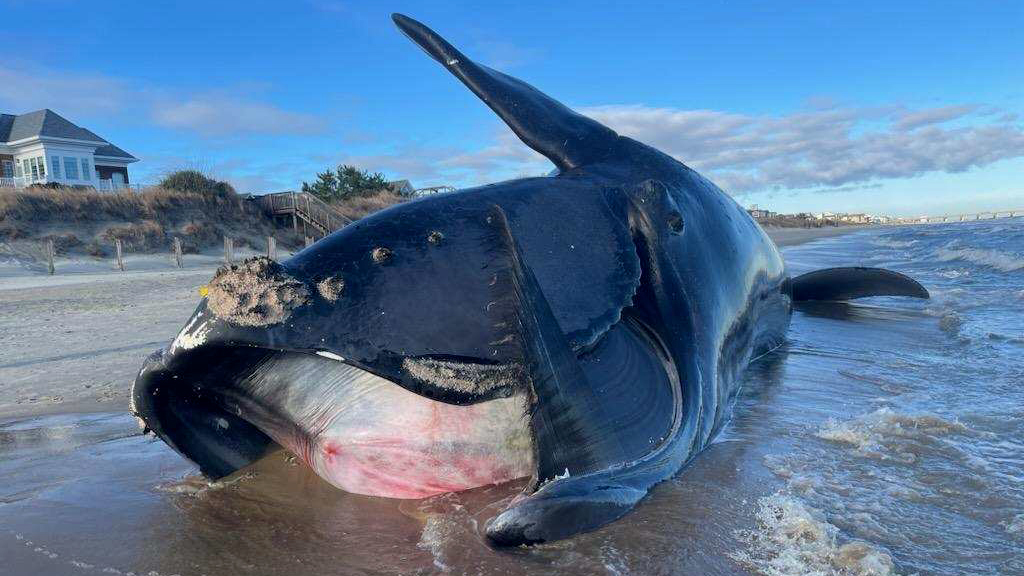Saving the North Atlantic right whale - North America
Don't fail our whalecritically endangered North Atlantic right whale found dead in Virginia
critically endangered North Atlantic right whale found dead in Virginia

(Virginia Beach – updated February 16, 2023) – A critically endangered North Atlantic right whale was found dead this week, washing ashore in Virginia Beach, VA. The likely cause of death was determined as “blunt force trauma,” indicative of a vessel strike.
NOAA Fisheries and a team of experts determined the whale suffered a catastrophic blunt force traumatic injury. The injuries are consistent with that of a vessel strike, including multiple vertebral fractures and separations that would have resulted in death shortly after the injury.
The whale measured approximately 45 feet in length, identified by researchers as a 20-year-old male due to distinguishing markings. It was first seen on Sunday and landed on shore by Monday morning.
A team of experts from IFAW arrived on-site as part of a multi-agency effort at Virginia Beach to assist in a necropsy—an animal autopsy—that is vital to help understand the cause of the whale’s death, and what can prevent such an event in the future.
With fewer than 340 of the species estimated alive today, and no more than 70 breeding females remaining, even one death spells tragedy for the population.
“This is another dead whale that the species just can’t afford to lose,” says Kathleen Collins, IFAW Marine Campaigns Manager. “Every individual animal is critical to the survival of the right whale population, and at least three have died and two new serious injury cases have been documented already this year. Urgent action is needed on the water now to stop the species sliding into extinction.”
The whale was found near the entrance to a port, though it is unclear where it was when it was hit. The area surrounding the port has a 10-knot speed restriction in place, but the current speed rule extends only 20 miles from the port entrance. Military vessels and vessels under 65 feet in length are exempt from this restriction.
IFAW’s Marine Mammal Rescue & Research team was called in for its expertise based on over two decades of industry-leading research and innovation on Cape Cod—a region identified as a global hotspot for cetacean stranding activity.
The necropsy was performed alongside a team of experts operating as a part of NOAA’s Greater Atlantic Regional Marine Mammal Stranding Network.
--
For more information on protecting the last of the North Atlantic right whales, visit Song of the Whale.
Report a stranded or injured marine animal anywhere along the coast via NOAA Fisheries.
Press Contact:
Stacey Hedman
Communications Director
m: +1 508 737 2558
e: shedman@ifaw.org
Related content
Every problem has a solution, every solution needs support.
The problems we face are urgent, complicated, and resistant to change. Real solutions demand creativity, hard work, and involvement from people like you.